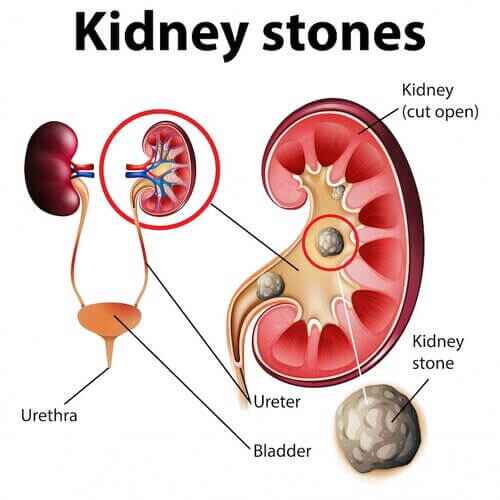Best Natural Treatment For Kidney Diseases.

Mar 10 , 2024
Is beer good for kidney stones?
This question has long intrigued individuals seeking relief or prevention from the painful condition of kidney stones.
Kidney stones, characterized by the formation of hard deposits in the kidneys, can cause significant discomfort and complications if left untreated.
Many people wonder whether consuming beer, a popular alcoholic beverage, can have any impact on kidney stone formation or prevention.
In this blog overview, we delve into the scientific evidence surrounding the relationship between beer consumption and kidney stones to shed light on this intriguing question.

Kidney stones also called nephrolithiasis, urolithiasis, or renal calculi are solid deposits made of salt and minerals that form inside kidneys.
Excess body weight, certain medical conditions, diet, and certain supplements and medications are among the many causes of kidney stones.
Kidney stones can impact any part of your urinary tract from kidneys to bladder.
Often, kidney stones form when the urine is concentrated which allows minerals to stick together and crystallize.
Passing kidney stones can be painful but usually, kidney stones cause no permanent damage if they are treated in a timely manner.
Depending on your condition, you may need just certain medication and drink more water to pass a kidney stone.
In other instances for example, if a kidney stone is lodged in the urinary tract it may cause urinary infection or cause complications that may require surgery.
Your doctor may suggest preventive measures to decrease the risk of recurrent kidney stones if you are at high risk of developing them again.
A kidney stone generally will not show symptoms until it passes into one of the ureters or moves around within the Kidney.
If any type of kidney stone is lodged in one of the ureters, it may cause blockage of urine flow and may even cause the kidney to swell and the ureter to spasm.

No, beer is not beneficial in removing kidney stones.
In fact excessive alcohol consumption including beer can make your body dehydrated which increases the risk of kidney stone formation.
Additionally, beer contains purines which increases uric acid production and may contribute to the formation of certain types of kidney stones.
It is important to drink lots of water to stay hydrated and follow the doctor's advice for a balanced diet to reduce the risk of kidney stone formation and moderate alcohol consumption is generally recommended for your overall health.
If you are concerned about kidney stones or other medical conditions associated with it is best to consult a doctor for treatment.
Beer consumption is a topic that requires careful consideration, especially for individuals with kidney stones.
Some studies suggest that moderate beer is helpful for kidney stones as it has a protective effect against kidney stones due to its diuretic properties, which can increase urine output and potentially help prevent the formation of stones.
Additionally, beer contains compounds like hops that may inhibit the formation of certain types of kidney stones.
However, it's essential to note that excessive alcohol consumption, including beer, can have negative effects on overall health, including kidney function.
Alcohol can lead to dehydration, which may contribute to kidney stone formation.
Moreover, beer is high in purines, which can increase the risk of uric acid stones in susceptible individuals.
Therefore, while some research suggests that moderate beer consumption might have some benefits for kidney stone prevention, it's crucial for individuals with kidney stones or a history of kidney issues to consult with their healthcare provider before consuming alcohol.
Additionally, moderation is key, and excessive alcohol intake should be avoided for overall health and well-being.
In conclusion, beer is not beneficial for kidney stones as it can increase the risk of formation due to dehydration and the presence of purines.
While moderate beer consumption may have some protective effects, individuals with kidney stones should consult with their healthcare provider before consuming alcohol and should prioritize hydration and a balanced diet for prevention.
Excessive alcohol intake should be avoided for overall health.